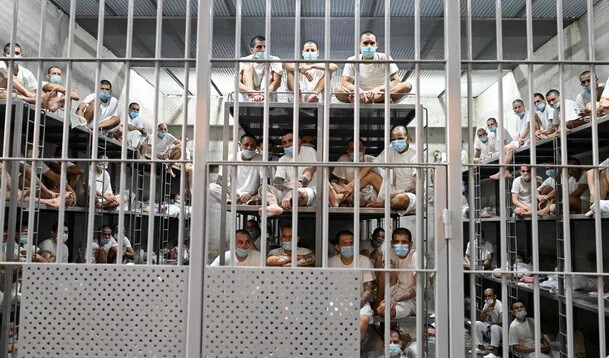
In a landmark decision, a U.S. federal judge in Texas has ruled that the Trump administration's deployment of the Alien Enemy Act (AEA), a centuries-old wartime statute, to expedite the deportation of Venezuelan immigrants, constitutes an overreach of executive authority. The ruling marks the first substantive judicial challenge to the administration's controversial use of the AEA in this context.
Judge Fernando Rodriguez Jr., presiding over the Federal District Court in Brownsville, Texas, concluded that the administration's justification for applying the AEA—asserting that Venezuelan gang members posed an "invasion" threat—was fundamentally flawed and exceeded the legal boundaries of the Act. The AEA, enacted in 1798, grants the president broad powers to detain and deport non-citizens during times of declared war or invasion, bypassing typical due process requirements such as warrants and trials.
The Trump administration's strategy hinged on a March proclamation invoking the AEA to target members of the "Tren de Aragua" gang, a Venezuelan criminal organization with a growing presence in the United States. The administration argued that the gang's activities constituted a form of invasion, thus justifying the use of the wartime law. However, Judge Rodriguez firmly rejected this interpretation.
"The application of the Alien Enemy Act in this manner is patently inconsistent with the plain and ordinary meaning of the statutory language," Judge Rodriguez stated in his ruling. He emphasized that the AEA's intended scope was limited to actual military invasions or organized intrusions, and that the administration had failed to provide sufficient evidence to demonstrate that the United States was currently facing such a threat.
The judge further stipulated that the president could not unilaterally declare a foreign government's actions as an invasion or predatory incursion without concrete evidence, nor could he arbitrarily designate foreign individuals as enemies subject to detention or deportation. This ruling effectively blocks the government from using the AEA to transfer or deport detainees in the southeastern region of Texas.
The legal team representing the Venezuelan immigrants, who filed the lawsuit last month, hailed the ruling as a significant victory. They argued that the administration's invocation of the AEA was a blatant attempt to circumvent established immigration laws and due process protections.
Prior to this ruling, federal courts in New York, Pennsylvania, and Colorado had issued temporary restraining orders against the government's use of the AEA for deportations within their respective jurisdictions. However, Judge Rodriguez's decision represents the first comprehensive judicial ruling on the merits of the case.
In response to the ruling, the Department of Homeland Security (DHS) issued a statement indicating its intention to appeal the decision, asserting that they expect a higher court to validate their position. The administration has consistently pursued a hardline stance on immigration, seeking to accelerate the arrest and deportation of undocumented individuals.
This ruling comes amid a surge in immigration enforcement activities. Last week, a joint federal and state operation in Florida, dubbed "Operation Tidal Wave," resulted in the arrest of 1,120 individuals over six days. Florida state officials described the operation as the largest immigration enforcement action in the state's history.
The use of the AEA has drawn sharp criticism from civil rights organizations and immigration advocates, who argue that it represents a dangerous expansion of executive power and a violation of fundamental rights. They contend that the law, designed for wartime scenarios, is being misused to target vulnerable immigrant populations.
The legal battle over the AEA is expected to continue as the DHS pursues its appeal. The outcome of this case could have significant implications for the future of immigration enforcement in the United States, particularly regarding the balance between national security and individual rights.
[Copyright (c) Global Economic Times. All Rights Reserved.]






























